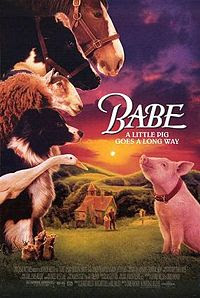
Conclusion
In terms of being badass, Nile is one of the most innovative technical death metal bands. Each track is characterised by sheer brutality or ingenuity. This is their second album and it is a bit fractal, but if you know Nile well it is still worth listening to get to know their roots. Plus you can never go wrong with Derek Roddy on drums.
Review
"Libation Unto the Shades Who Lurk in the Shadows of the Temple of Anhur" evokes ancient Egypt in the mind's eye. This track features an acoustic guitar, lusciously recorded with multiple microphones inside a stone chamber underneath the recording studio to capture real reverb.
Anhur was originally a foreign war deity, characterised by a robe and the four feathers in his head dress. Shu, the Egyptian concept of sky, also had four feathers in its head dress. Anhur also means sky bearer. It is thus not surprising that Anhur and Shu later became merged to form Anhur-Shu. No prizes for guessing where that name came from.

Anhur, as portrayed on this site.
In the time of the New Kingdom, Anhur became known as a saviour. This is because people viewed war as the source of their emancipation from human burden. Freedom and victory were seen as a direct result of war. If you consider economics as a kind of warfare, with capitalism as the source of freedom and victory achieved over the human burden, Ludwig von Mises can be seen as a saviour and the earthly embodiment of Anhur. Socialism can then be seen as largely concerned with sharing human burden instead of combating it. In this view, capitalism is regarded as the war against socialism, and socialism is regarded as human burden.
Socialism considered here refers to an economic system where the means of production are owned and controlled by the government. No private land ownership is allowed. A definition of communism is a system with the credo: From each according to his ability, to each according to his need. For the purpose of this discussion, no distinction is made between communism and socialism.
The definition of capitalism considered here refers to an economic system where the means of production and the distribution of goods are owned and controlled by private ownership. In such a system, the only exploitation could thus result from the private owners themselves. Laissez faire capitalism, with minimal or no state intervention, is the preferred definition for this discussion.
In such a system, to claim that any person who benefits from capitalism is exploiting someone else is as short-sighted and far fetched as claiming electricity is evil because people get electrocuted. Just like with electricity, the benefits of capitalism far outweigh the disadvantages, but don't take my word for it. Take the word of Ludwig von Mises for it.

Badass capitalist Ludwig von Mises. He should really be wearing four feathers in a head dress.
Economic calculation problem
Socialism leaves many unanswered questions. Ludwig von Mises identified some of these with his criticism of socialist economics. A few key concerns addressed by capitalism which are not adequetly dealt with by socialism include:
- comparing heterogeneous goods
- relating utility to capital and consumption of goods
- entrepreneurship needs a pay-off
- coherent planning for production without economic stimulus
- financial markets need a way to guide capital investment in order to avoid economic depression
Disadvantages of socialism
- Socialism has no objective way of comparing heterogeneous goods, never mind services. How many fish go into a haircut? How many potatoes are a fish worth? What about a house? How many fish would you need to catch in order to barter for a house? What if the house builder is vegetarian? Clearly, a barter system is not without its shortcomings. Perhaps this is why a currency developed in primitive societies in the first place.
- Marxist theory argues that labour content serves as a means to value goods (labour theory of value). This is absurd, as a plastic chew toy from China arguably has very little labour content if it were made in a factory with very low labour intensity. Similarly, in a rationing system, there is no objective way to rate the consumption of goods or the suitability of those goods. How do you rate consumer satisfaction if the consumer does not have the ability to choose with his money?
- Entrepreneurship needs a pay-off. It is widely accepted that entrepreneurship is crucial to economic development. If you follow the credo of from each according to his ability and to each according to his need, someone like Bill Gates would have no incentive to identify a window of opportunity in the market and then figure out a way to exploit it. Why should he, if he would get according to his need?
Nobody needs a company worth billions of dollars, except (ironically) the millions of starving people who rely on charity. It is thus not accurate to presume that the millions of starving people are getting exploited by Bill Gates and other capitalists. The truth is it is the other way around. Millions of starving people are exploiting the capitalists, because the capitalists are losing out whenever they make a donation to charity. Of course, if the millions of starving people could be trained to take part in the economy, that is to become capitalists themselves, it is a win win. They would be producers and consumers, instead of only being parasitic consumers.
As an aside, in terms of labour theory of value, how much would a million dollar cheque from Bill Gates really be worth? Thousands of people performed labour for that cheque. Is it really fair to give that labour away? - Coherent planning for production without any economic stimulus would rely on the expert opinion of a few who were appointed by the government to make sure everyone remains the lowest common denominator. You should really not catch more fish than what a potato is worth, despite the fact that you can't account for the weather, potato blight or low fish levels. In a socialist system, you can't even do the accounting for that.
- Financial markets need a way to guide capital investment in order to avoid economic depression. You can't view wealth as a pie that needs to be divided among everyone. Everyone did not help to bake that pie. Those who are not economically active need to find a way to become economically active. It is not true that you are entitled to a job or entitled to an amount of wealth. If you had a sack of potatoes stored and your community hits a drought, but you weren't actually allowed to store potatoes for yourself, would it be fair to share those potatoes at your expense?
Naturally, this is a very biased rant against the evils of communism. Let's just say I would rather live in my own house in Africa than in the government's house in the USSR. Speaking in terms of communism, if the Spice Girls sold more than 23 million records and Nile needs to sell 1 million records to make ends meet, then surely the Spice Girls should buy a shit load of Nile albums. Now in theory that's not a bad idea at all, but in practice, if you had a socialist system, where would that money ultimately originate? How would the Spice Girls sell 23 million records if each person can only afford to buy one album? Would a band like Nile even exist in such a system, where choice is so limited? What would the Spice Girls do with a million of the same album?

The Spice Girls. The Marxist labour theory of value dictates that since the Spice Girls can hardly play any instruments, and Nile can play their instruments at near virtuoso level in their genre, each Spice Girl has to buy about a million copies of Nile's Black Seeds of Vengeance. Don't worry, it makes no sense to me either.
You can get a more balanced account of the entire argument on the Wikipedia page of the economic calculation problem. If you really want to feel your brain get smaller, read the counter arguments and notice how piss poor they are. Especially with regards to the surprising accuracy of prediction markets and supposedly the empirical evidence they bring along with them. Oh yes, not to mention that the USSR could not sustain itself while Hong Kong is a decidedly more advanced place to live.
Clearly, Nile's music just makes me angry. The Egyptian flavours in their lyrics just remind me that socialism is trying to reinvent the wheel when we are already conceptualising time travelling.
William J.H. Boetscker's Ten Cannots (not so common sense)
- You cannot bring about prosperity by discouraging thrift.
- You cannot strengthen the weak by weakening the strong.
- You cannot help little men by tearing down big men.
- You cannot lift the wage earner by pulling down the wage payer.
- You cannot help the poor by destroying the rich.
- You cannot establish sound security on borrowed money.
- You cannot further the brotherhood of man by inciting class hatred.
- You cannot keep out of trouble by spending more than you earn.
- You cannot build character and courage by destroying men's initiative and independence.
- And you cannot help men permanently by doing for them what they can and should do for themselves.
Track listing
- Invocation of the Gate of Aat-Ankh-es-en-Amenti
- Black Seeds of Vengeance
- Defiling the Gates of Ishtar
- The Black Flame
- Libation Unto the Shades Who Lurk in the Shadows of the Temple of Anhur
- Masturbating the War God
- Multitude of Foes
- Chapter for Transforming into a Snake
- Nas Akhu Khan she en Asbiu
- To Dream of Ur
- The Nameless City of the Accursed
- Khetti Satha Shemsu
Personell
Mostafa Abd el Aziz: arghoul.
Aly et Maher el Helbney : respirations on "The Nameless City of the Accursed".
Mohammed el Hebney: additional chants on "Khetti Satha Shemsu".
Peter Hammoura: vocals, additional drums.
Derek Roddy: drums.
Karl Sanders: vocals, guitar.
Dallas Toler-Wade: vocals, guitar.
Rating
















